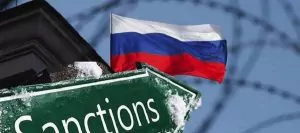Subscribe to our Telegram channel

The EU bans the supply of laptops and generators to Russia
The European Union has approved the ninth package of sanctions against Russia in connection with its full-scale invasion of Ukraine, aimed at undermining the military-industrial complex of the terrorist state and affecting a number of critical military industries. The new sanctions include a ban on the supply of equipment and industrial products.
«Direct exports of engines for unmanned aerial vehicles to Russia and any third countries that may transfer them to a terrorist state are now restricted,» the European regulator said. According to the European Commission, the sale of toy drones, laptop computers, radio navigation and other industrial systems to Russia is also strictly prohibited.
The sanctions list includes 169 organizations that supply goods to Russia «that could contribute to the technological improvement of the Russian defense and security sector.» Drone engines, chemical and biological equipment, riot control equipment and electronic components are subject to further restrictions. Prohibitions on the use of cryptocurrencies have also been tightened to prevent wealthy Russians from using digital assets to circumvent sanctions.
The ninth package of sanctions also applies to the supply of industrial products, including recreational drones, generators, laptops, computer components, printed circuit boards, radio control equipment, aircraft engines and engine parts, cameras and lenses. According to the Financial Times, the new sanctions provide for export controls on key chemical and nerve agents that could be used by the Russian military.
In the previous, eighth package of sanctions against the occupying country, the EU banned Russians from owning cryptocurrency wallets in the EU member states. Russian citizens will also not be able to store digital assets in the EU, regardless of the amount on their cryptocurrency wallet.
In turn, the fifth package of sanctions against Russia included a ban on the provision of services related to digital assets to residents of the occupying country. It was about deposits exceeding € 10,000. In late September, the US House of Representatives supported the Russia Cryptocurrency Transparency Act. After its final adoption by the Senate, Russia will not be able to defend itself against sanctions by using cryptocurrencies.

